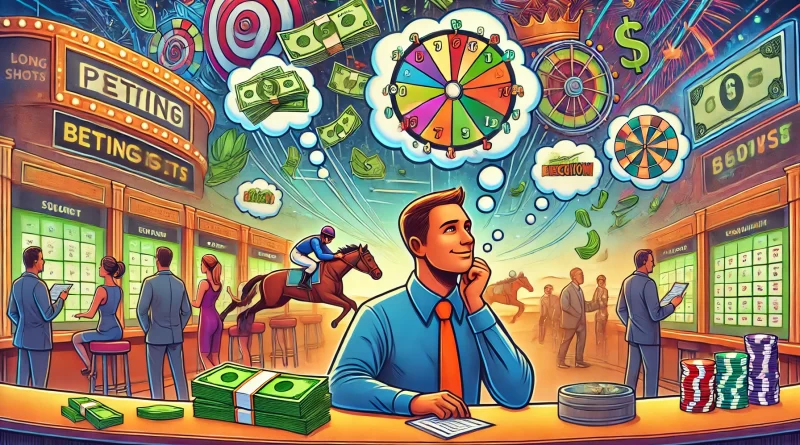The Psychology Behind Betting on Long Shots
Long shot bets, also known as outsider bets or underdog bets, are wagers placed on outcomes with low probabilities of occurring. While most bettors tend to favor safer bets with higher chances of winning, there is a subset of gamblers who are drawn to the allure of betting on long shots. The appeal of these bets lies in the potential for substantial payouts if the unlikely event does come to fruition. This article will delve into the psychology behind why some individuals are inclined to take such risks when placing bets.
Cognitive Biases That Influence Betting Behavior
When it comes to betting on long shots, several cognitive biases come into play and influence the decision-making process of bettors. One of the most prominent biases is the availability heuristic, where individuals tend to overestimate the likelihood of events that are easily recalled from memory. In the context of long shot betting, gamblers may be swayed by recent news or stories of underdogs defying the odds, leading them to believe that similar outcomes are more probable than they actually are.
Another bias that affects betting behavior is the illusion of control, where individuals believe they have more influence over the outcome of an event than they actually do. This can lead to overconfidence in the chances of a long shot bet paying off, as bettors may feel they have a strategy or insight that gives them an edge.
Confirmation bias also plays a role in long shot betting, as individuals may seek out information or data that supports their belief in the likelihood of an outsider winning. This selective attention to evidence that aligns with their preconceived notions can cloud judgment and lead to riskier bets being placed.
In conclusion, cognitive biases like the availability heuristic, illusion of control, and confirmation bias can all contribute to the appeal of long shot bets for some individuals. These biases skew perception and decision-making, making the prospect of a big payout from an unlikely outcome seem more attractive than it may actually be.
Emotional Factors at Play When Wagering on Outsiders
Beyond cognitive biases, emotional factors also play a significant role in the decision to bet on long shots. One such factor is the thrill of uncertainty, where the adrenaline rush of anticipating an unlikely win can be a major draw for some bettors. The emotional rollercoaster of hoping for a long shot bet to come through can add an extra layer of excitement to the betting experience.
Additionally, the concept of loss aversion may come into play when considering long shot bets. Some individuals are more averse to missing out on a potentially huge win than they are to losing a smaller amount of money on a safer bet. The fear of regret for not taking a chance on an outsider winning can drive bettors to take risks they may not otherwise consider.
Moreover, social factors can also influence the decision to bet on long shots. The desire to be seen as a risk-taker or to stand out from the crowd by backing an underdog can play a role in the appeal of these bets. Additionally, peer pressure or group dynamics within betting communities can influence individuals to take a chance on long shots in order to fit in or gain social approval.
In summary, emotional factors such as the thrill of uncertainty, loss aversion, and social influences can all contribute to the attraction of long shot bets for certain individuals. These emotional drivers can override rational decision-making and lead to riskier betting behavior.
In conclusion, the psychology behind betting on long shots is a complex interplay of cognitive biases and emotional factors. While these bets may offer the potential for significant payouts, it is important for bettors to be aware of how their judgment may be influenced by biases and emotions when considering placing wagers on outsiders. By understanding the underlying psychology at play, bettors can make more informed decisions and approach betting with a clearer perspective on the risks involved. Remember, betting should be seen as entertainment and a way to enhance the enjoyment of sports events, rather than a guaranteed way to make money. It is essential to gamble responsibly and within your means to ensure a positive and enjoyable betting experience.
